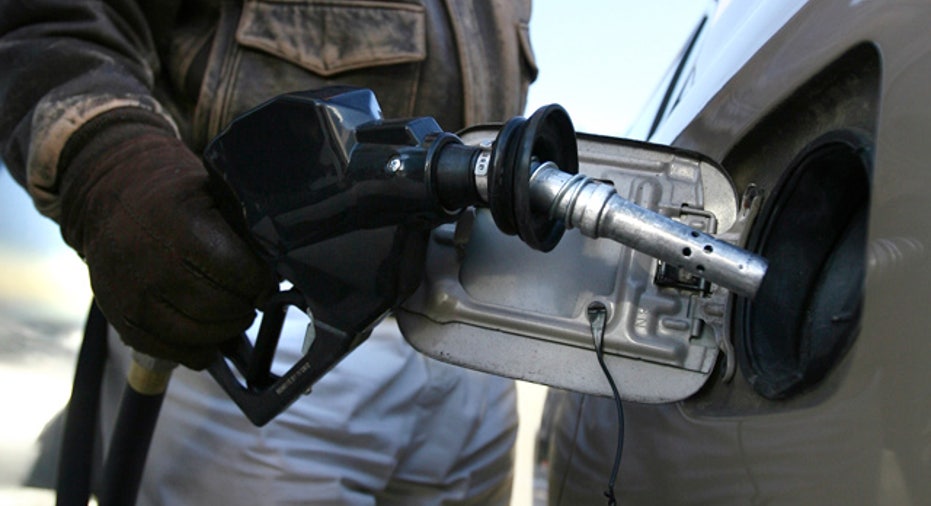Gasoline Prices Can be Curbed: Here’s How

The U.S. Government already has a steel truncheon to curb high oil and gasoline prices. It’s called Dodd-Frank.
Petrochemical companies, banks, Wall Street and hedge fund speculators, though, don’t want to see real policing of this financial reform law to go into effect. They make billions with the status quo--at your expense.
In a classic red-herring tactic, House Republicans blame the federal budget deficit, EPA regulations and President Obama for high gas pump prices. Who’s really to blame? Let’s follow the numbers.
You can make a minor argument that increased demand for crude oil — and to some extent reduced supply--has some bearing on gasoline prices. There is a modest economic recovery going on here, in Europe and in developing countries like China and India. Everyone’s continuing to demand more black gold.
Yet there’s a huge disconnect between actual rise in demand and prices. According the American Petroleum Institute, gasoline demand rose 6.1% (year over year) in March while the pump price rose 22% during that period.
The prices of all grades of gasoline rose 5.3 cents in one week (ending April 20), which was the highest level since August, 2008.
Gas prices are up 133% since the Wall Street meltdown gob-smacked the world economy in December, 2008. Is it possible that demand has risen that much in a sluggish period coming out of the largest economic downturn since the 1930s? Highly unlikely. You can blame slack production and Middle East crises for some of the price disparity, but certainly not all of it.“There is no question that speculation is playing a role in the rise of gas prices,” said Rep. Barney Frank, (D. Mass.), the ranking member of the House Financial Services Committee and key author of the Dodd-Frank law.
Commodity traders know the sky’s the limit because the key safeguards in Dodd-Frank that would rein in speculation are still mired in the rule-making process with the Commodities Futures Trading Commission.
Traders know they can also freely bet against a falling dollar. Oil, gold and other dollar-denominated commodities move inversely to the buck.
Speculation policing, however, is not on the books. The GOP budget plan even calls for cutting the CFTC’s staff by two-thirds, so even if the more stringent Dodd-Frank rules emerged, the agency may not have the cops to enforce them.
Congress has known for a while that speculators rule the roost and force oil prices higher. For years, political shaming sessions would be staged in front of key energy committees, but these wet-noodle floggings of oil company moguls never resulted in any meaningful investigations or tougher laws.
Meanwhile, oil companies and traders gorge on obese profits. Exxon-Mobil even had the cheek to post a recent blog noting “…it’s really not credible to suggest that we are responsible for world oil prices.” Sure, and Donald Trump has never made a dime in real estate and hates publicity.
Washington has already seen the evidence for speculative abuses. A long-forgotten 2006 report by the Senate Permanent Subcommittee on Investigations, showed that not only were speculators buying oil contracts for petroleum they would never use, their trades were run through opaque, unregulated exchanges.
The subcommittee faulted what it called the “Enron loophole,” (yes, that Enron) which Congress inserted in an infamous 1999 law deregulating commodities trading that permitted unpoliced over-the-counter exchanges. These devilish enterprises allowed derivatives such as credit default swaps to grow into a $60 trillion market--and we know what happened with those monsters in 2008.
Although the Senate probe concluded that speculation put oil prices on steroids two years before Wall Street’s massive meltdown, the money trust still wants to let speculators have their way. As a result, gasoline is above $4 a gallon in many urban areas with no ceiling in sight as politicians blame each other.
Unfettered commodity speculation has to end. Next time you grimace at your gasoline or heating-oil bill, your first thought shouldn’t be to curse an oil giant like Exxon-Mobil. Think Dodd-Frank. Then dial your congressman.



















